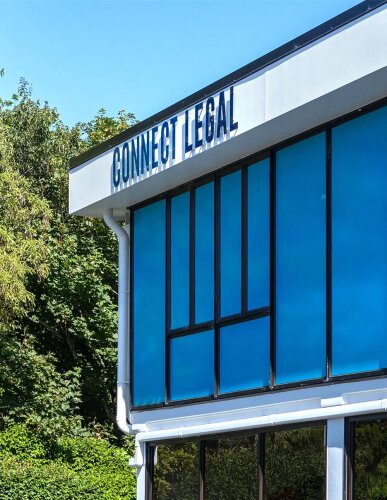Best Antitrust Litigation Lawyers in New Plymouth
Share your needs with us, get contacted by law firms.
Free. Takes 2 min.
List of the best lawyers in New Plymouth, New Zealand
About Antitrust Litigation Law in New Plymouth, New Zealand
Antitrust litigation in New Plymouth refers to legal disputes involving competition law issues within the local and wider New Zealand context. These cases typically center around businesses accused of engaging in practices that restrict competition, such as price-fixing, monopolization, market sharing, or abuse of market power. In New Zealand, competition law is primarily governed by the Commerce Act 1986, which applies nationally, but local businesses and individuals in New Plymouth need to be aware of how these rules affect their specific market. Antitrust litigation ensures that the market remains fair and that consumers and businesses have equal opportunities.
Why You May Need a Lawyer
If you suspect your business or your interests are being harmed by unfair competition practices, you may need a lawyer specializing in antitrust litigation. Common situations include:
- Your business has been accused of collusion or price-fixing.
- You believe competitors are engaging in unfair conduct that restricts your market entry or expansion.
- You suspect a supplier or customer has taken anti-competitive actions such as exclusive dealing or boycotts.
- You are facing an investigation by the Commerce Commission regarding your commercial practices.
- You want to ensure that your business contracts and agreements comply with competition law.
- You have suffered financial loss due to another business's anti-competitive conduct and wish to seek damages.
Lawyers can advise you on your rights and responsibilities, help investigate the circumstances of your case, and represent you during investigations, negotiations, or court proceedings.
Local Laws Overview
Antitrust litigation in New Plymouth is shaped by the nationwide Commerce Act 1986, which is enforced by the Commerce Commission. Key aspects of New Zealand's competition law include:
- Prohibition of Cartels: Agreements between competitors to fix prices, divide markets, restrict output, or rig bids are illegal and can result in severe penalties.
- Abuse of Market Power: Businesses with substantial market power are prohibited from using it to substantially lessen competition in a market.
- Merger Control: Mergers or acquisitions that substantially lessen competition may be blocked unless authorized by the Commerce Commission.
- Investigatory Powers: The Commerce Commission can conduct investigations and prosecute breaches of competition law.
- Private Action: Individuals or businesses harmed by anti-competitive conduct can bring private actions through the courts for damages or injunctive relief.
Local businesses must comply with these rules, whether operating solely in New Plymouth or throughout New Zealand. Breaches can result in significant financial penalties and reputational harm.
Frequently Asked Questions
What is antitrust litigation?
Antitrust litigation refers to legal cases where businesses or individuals are accused of violating competition laws, such as price-fixing, collusion, or abusing market dominance to stifle competition.
What laws regulate antitrust activity in New Plymouth?
The Commerce Act 1986 is the key piece of legislation in New Zealand regulating antitrust activity, enforced by the Commerce Commission.
Who can bring an antitrust claim?
Both the Commerce Commission and affected businesses or individuals can bring antitrust claims. The Commission may initiate investigations and court proceedings, while private parties can seek compensation for harm suffered.
What are common types of anti-competitive conduct?
Common conduct includes cartels (price-fixing, bid rigging), exclusive dealing, market allocation, abuse of dominant market position, and certain anti-competitive mergers or acquisitions.
What role does the Commerce Commission play?
The Commerce Commission investigates alleged breaches, enforces competition law, takes court action against violators, and authorizes or blocks certain transactions.
Can a business be penalized if unintentionally involved in a cartel?
Yes, intent is not always required for liability under the Commerce Act. Unintentional involvement can still result in legal consequences.
What penalties can be imposed for antitrust violations?
Penalties include substantial fines for individuals and companies, compensation or damages to affected parties, court orders to cease anti-competitive behavior, and reputational damage.
How long do antitrust cases take in New Plymouth?
The duration varies depending on case complexity. Some cases resolve quickly through settlement or negotiation, while others may take months or even years if they proceed to court.
Should I cooperate with a Commerce Commission investigation?
Cooperating can sometimes lead to more favorable outcomes, such as reduced penalties or immunity, especially if your cooperation assists the investigation. Legal advice is recommended before responding.
How do I find a qualified antitrust lawyer in New Plymouth?
Look for a specialist with experience in competition law matters. Local law societies, the New Zealand Law Society, and business associations can provide recommendations.
Additional Resources
For further information and support regarding antitrust litigation in New Plymouth, consider these resources:
- Commerce Commission New Zealand: The regulatory authority overseeing competition law.
- New Zealand Law Society: Provides a lawyer search feature and resources on legal topics.
- Citizens Advice Bureau: Offers general legal information and referral services.
- Local Business Associations: May offer guidance or connect you with legal professionals experienced in competition matters.
- Community Law Centres: Provide free or low-cost legal advice for those who qualify.
Next Steps
If you believe you have been affected by anti-competitive conduct, or if your business is facing an investigation or litigation regarding competition law, consider the following steps:
- Document any relevant evidence, such as communications, contracts, and details of the conduct in question.
- Seek initial legal advice from a lawyer experienced in antitrust law. The earlier you act, the better your protection and response will be.
- Contact the Commerce Commission if you wish to make a complaint or request information about your rights and obligations.
- If cost is a concern, reach out to community law centers or the Citizens Advice Bureau for assistance or referrals.
- Prepare for possible investigation or litigation by understanding your legal obligations and considering your options.
Getting the right legal guidance early can help you manage risk, resolve disputes efficiently, and ensure compliance with New Zealand’s competition laws.
Lawzana helps you find the best lawyers and law firms in New Plymouth through a curated and pre-screened list of qualified legal professionals. Our platform offers rankings and detailed profiles of attorneys and law firms, allowing you to compare based on practice areas, including Antitrust Litigation, experience, and client feedback.
Each profile includes a description of the firm's areas of practice, client reviews, team members and partners, year of establishment, spoken languages, office locations, contact information, social media presence, and any published articles or resources. Most firms on our platform speak English and are experienced in both local and international legal matters.
Get a quote from top-rated law firms in New Plymouth, New Zealand — quickly, securely, and without unnecessary hassle.
Disclaimer:
The information provided on this page is for general informational purposes only and does not constitute legal advice. While we strive to ensure the accuracy and relevance of the content, legal information may change over time, and interpretations of the law can vary. You should always consult with a qualified legal professional for advice specific to your situation.
We disclaim all liability for actions taken or not taken based on the content of this page. If you believe any information is incorrect or outdated, please contact us, and we will review and update it where appropriate.











